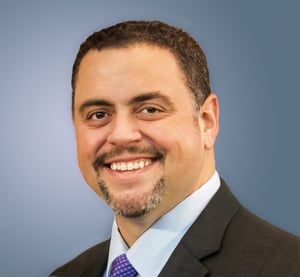About Us
- Vision & Mission
- History
- Why the name Portainer?
- Values
Vision
Portainer aims to be a single-pane-of-glass “manager of managers” management toolset that allows anyone in IT to deploy, manage, and monitor containerised applications and platforms, regardless of their current knowledge/exposure to these technologies. We want Portainer to be the only tool IT need to learn in order to leverage containers, and that the learning curve should be dramatically flatter as a result of adopting Portainer. We will provide access to a range of underlying technologies through our simple-to-use, follow-your-nose UI; either capability we create natively, or through technology we integrate with.
Mission
Portainer believes that access to the game-changing capabilities of containers should be available to every organisation, regardless of their size, maturity, or revenue; we believe that the benefits of containers make them so monumentally disruptive, that only those organisations that embrace containerization will be successful in delivering digital assets/services to market, and so it’s on us to ensure everyone has access to this technology; in a way, we are democratizing the technology.
The start of Portainer traces back to when Neil Cresswell, the CEO of Portainer, first encountered Docker. He immediately recognized its potential to revolutionize organizational IT infrastructure but also identified a significant barrier: its complexity. Neil was convinced that for container technology to achieve widespread adoption, a major shift needed to occur and one of two things must happen:
- Either the industry as a whole would need to retrain, which history has shown takes 7-10 years for skills to become pervasive, OR;
- The technology would need to become substantially simpler in order for more traditional IT skilled persons to operate it.
Given that any reliance on an industry retraining itself is high risk, Neil, along with Anthony Lapenna’s help, set about building a tool to simplify the technology. The original vision was to deliver a “Robin Hood technology” which would give smaller organizations who couldn’t afford the expertise necessary to run containers, a way to exploit the technology for significantly less cost.
The vision was (and indeed still is) to ‘make containers simple’ which sounds easy, but isn’t. It’s very easy to make something simple by taking away its capability, it’s extremely hard to make something simple without impacting capability.
Why Portainer Business?
As users of Portainer's open source project grew, so too did the range and breadth of use cases.
It was clear that to try and serve all use cases from the one product would become increasingly complex and likely lead to UX confusion. It was decided that a special purpose edition would be offered, focused specifically on the needs of business environments, as demanded by the CIO, CISO, and CTO.
Following in some well trodden tracks, the team embarked on building Portainer Business, which offers the support, security, control, reporting and analytics functionality business users need for an annual license fee. Portainer Business is built on top of the open source project and benefits from improvements made to the core.
Open Source Origins
We believe passionately in the power of open source software and Portainer Community Edition will always be free to the community under a ZLIB license. However, with the launch of Portainer Business, we are now an Open-core company.
Portainer Business provides a revenue stream that allows us to fund the ongoing development and maintenance of Portainer CE. To learn more about our Open-core philosophy read our Tao of Portainer blog.
Born Global
Portainer was born global, operating remotely, playing to its advantage as an agile software company. The team is spread all over the world, which brings a diversity of expertise and thinking it would be hard to accumulate any other way. It also provides the base for our 24/7 Portainer Business support offering.
While many are surprised to discover Portainer is currently headquartered in New Zealand, it is very much by choice. As an organisation, we work remotely by design and leverage our growing global footprint to the advantage of our team, customers, investors and business partners.
Portainer was never designed to appeal to expert “unicorns”, as they generally like to do things in a very particular way. It’s designed to appeal to people who just want to get it done and don’t care about the ‘how’. So, whilst experts were never the primary target for Portainer, it has become clear that it can help them by acting as a force-multiplier, allowing them to use Portainer to set basic standards, templates, etc (all the hard stuff) which allows lower-skilled colleagues to use the platform with the complex items pre-completed.
The idea that an expert can pre-configure a wide range of settings, which allows users to get on with the using and not worry about the configuring, is what makes Portainer unique. This design concept, strategy, and DNA remains strong and we continue to avoid exposing any more of the underlying platform as is absolutely necessary.
From time to time Portainer is criticised for the way that it works. We hear people say “that’s not how a DevOps expert would do X, Y and Z’ and that’s OK by us. The product was never designed for DevOps experts.
Portainer is a great fit for organizations that cannot hire/train their staff for the new cloud native world, and want Portainer to bridge the gap. Portainer is a poor fit for cloud-native companies that have a large investment in people that want to spend considerable amounts of time and money to be “like Google”.
Portainer cranes are a common sight on every single port around the world. They were a game changer for port operators, allowing them to quickly and efficiently load and unload ships that came into their ports. Portainer cranes have been credited with increasing efficiency, increasing the speed of port operations, enhancing the safety of cargo in movement, cost savings, and scalability; all very positive outcomes.
Portainer the product shares the same ambitions as their physical namesakes. We aim to make it faster, easier, safer, and cheaper to manage the operation of a Docker/Kubernetes platform, and we aim to do so in a highly scalable way.
Take clues from the Port operators; sure they could have each come up with their own bespoke way of loading and unloading cargo ships, or they could have hired 100x more laborers to do so, but they didnt. They wanted a standardized way that reduced the costs and simplified their operations.
This is why we chose the name Portainer (and its why our logo looks like a crane).
No Egos - We are all here to build something awesome, we don't need ego’s. Every single one of us has been bought into the business because we have something to add, so leave ego’s and a sense of “hierarchy” at home.
Customer First - Whenever we imagine a feature, build a feature, QA a release, support a user, or message to our community, always think from the perspective of the user. It's not about us, it's about them.
Honesty - We need to know what you think, either about your team, your manager, the product, or market perception. If you have a view/opinion, share it. No one will be criticised for sharing their opinions.
Startup mindset - We should always operate as a startup; we need to be dynamic and hyper-responsive to user feedback and market shifts. A roadmap that is inflexible to changes in the market is a roadmap for failure. Expect change, embrace it, it's what makes us loved by the market.
Muck In - Titles and job roles are awesome, but don't let them stop you providing assistance to anyone else, in any other area of the business; if you have a valuable contribution to make, do so. Everyone is smart, everyone has a unique viewpoint, so muck in and help each other out.
Meet some of our team and advisors
We know it is a cliche - but it's also true. Portainer is all about the talent behind it. For those of us taking the lead, we could not appreciate that more as our outstandingly talented team continues to grow both locally and internationally.
- C-Level
- Advisors

years’ experience in advanced
technology including
virtualization, storage and
containerization.

infrastructure automation and
has a background in complex
software development and IT operations.

start-ups in Singapore, Australia and New Zealand, Geoff contributes strategy and
operational thinking to the
Portainer team.

